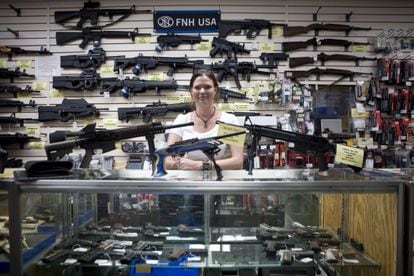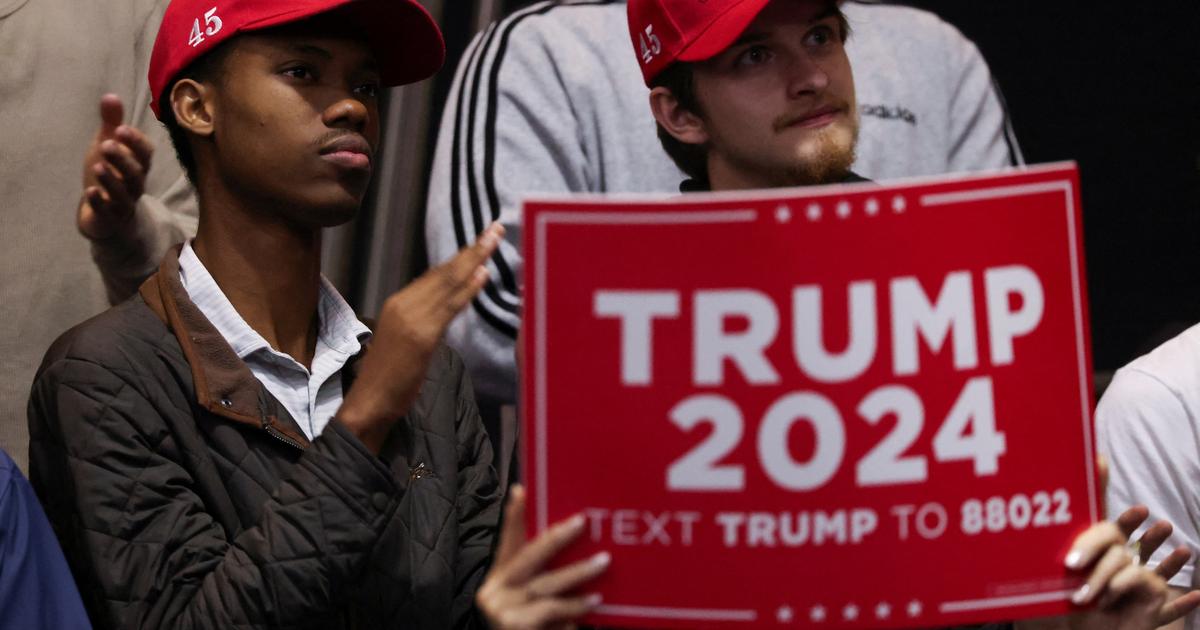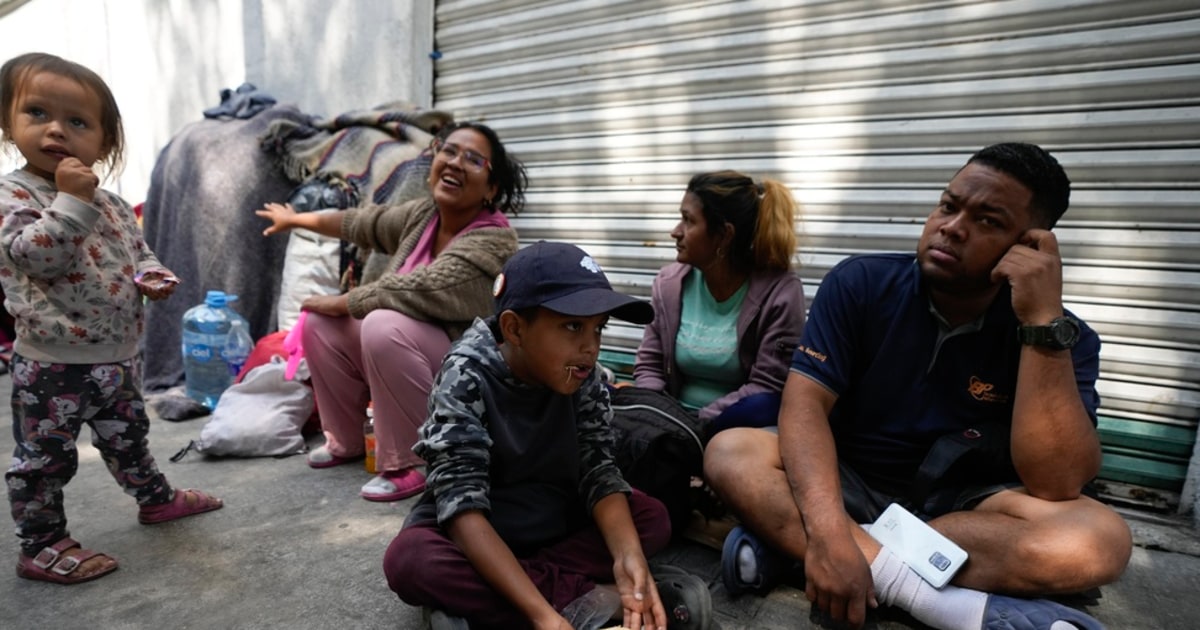Gina Brewer, owner of Texas Gun, a San Antonio gun dealer.Gilles Mingasson / Getty Images
Mexico is looking for those responsible for the wave of violence that has kept the country in suspense for 17 years.
The Mexican State has set its sights on one of them: the arms manufacturers and distributors of the United States.
"They know well that these weapons are among the favorites of the drug cartels," argues the 139-page lawsuit that the government has presented in a court in Massachusetts, in a historic complaint that points to the illegal arms trade that nurtures criminal groups from the northern border of Mexico.
A story widely known among Mexicans and Americans, who count in thousands - about 340,000 a year - the weapons used in crimes that originate in a factory in the United States and end up in the Attorney General's Office in Mexico as evidence of bloody crimes.
More information
The fight against arms trafficking between the United States and Mexico: two decades of diplomatic fiascos
Mexico sues 11 companies in the United States for facilitating illegal arms trafficking
In the last three decades, the Mexican government has avoided making the United States uncomfortable with the issue, despite pressure from Washington on the fight against drug cartels. Although the accusations had reached international forums and the officials in turn had made a statement, especially when the news of a massacre was known, the dimension of the damage that the US arms industry has done in Mexico had never been so clear. In the complaint, Mexico avoids entering into a diplomatic debate and clarifies that “this case has nothing to do with the Second Amendment” –the constitutional right of Americans to possess and bear arms–,Rather, it is about pointing out an industry that, with extensive knowledge of illegal arms trafficking, manages to position its products in Mexico.
Despite this delimitation, the scope that this complaint may have in the bilateral relationship is still unknown. So far, the US government has not ruled on the lawsuit. Only the arms industry union has spoken out against the lawsuit, stating that it is unsupported and that its sales respect US law. "The Mexican government is responsible for the rampant crime and corruption within its borders," the organization mentioned in a statement. The main spokesperson in Mexico on the issue in the last two years has been the Minister of Foreign Affairs, Marcelo Ebrard, and the complaint has been handled from his office. "If we do not win it, they will not understand, they will continue to do the same and we will continue to have deaths every day in our country",he said Wednesday during the announcement of the legal action. The Foreign Ministry has recognized that the process before the courts will be long, but that the Mexican government is willing to go to the US Supreme Court.
In its pages the complaint lists more than a hundred crimes since 2004 in which the weapons used to kill had been illegally trafficked from the United States. Mexico places that year as a point of no return in which homicides have only increased and where up to 90% of the weapons used in these crimes have had their illegal origin in the United States. Mexico accuses 11 companies, but emphasizes that six have benefited most from the criminal groups' demand for weapons: Smith & Wesson, Beretta, Century Arms, Colt, Glock and Ruger. In addition, it describes that from the design of each of their products to the sale, companies prop up criminals as potential clients. The companies appeal to the tastes of drug traffickers who have AK-47 and AR-15 rifles among their weapons of choice."[The arms companies] choose to continue supplying the criminal arms market in Mexico because they benefit from it," the Mexican government describes in its indictment.
An example, they say, is the special edition of a .38-caliber Colt pistol with the face of Emiliano Zapata and the phrase attributed to the leader of the Mexican Revolution: "It is better to die standing than live on your knees." The shooting of a copy of that weapon ended the life of journalist Miroslava Breach in 2017. The attacker was linked to the Sinaloa Cartel and the weapon was illegal. "These models are status symbols, they are coveted by the cartels and they are brought in large volume to Mexico," denounces the Mexican government. The pages of the indictment gradually reveal the contemporary history of the drug cartels, naming them and assigning them crimes: Los Zetas, the Jalisco Nueva Generación Cartel, La Línea, the Sinaloa Cartel, the Northeast Cartel, the Family Michoacana,the Knights Templar and the Santa Rosa de Lima Cartel.
The lawsuit is littered with examples of the travel of weapons from the United States. According to the Mexican government, the companies know their distributors and know that 10% of them distribute 90% of the weapons that arrive illegally in Mexico. It points out that the cartels make front purchases through US citizens who are not subject to any investigation, despite the fact that they acquire dozens of products considered for military use; also that the arms promotion fairs in the United States - known as
gun shows
- serve to celebrate some of the transactions; and that the design of these weapons is designed for the cartels to adapt them to their needs: conversions for automatic use or customization with gold and silver scales.
Mexico's claim is historic because it puts the names of the arms companies, drug cartels and victims on the same paper.
Although for the moment it leaves out other actors responsible for the escalation of violence, indirectly, the Mexican government is making a public recognition of the consequences of the war on drugs in which there are already around 350,000 deaths.
“The life of Mexicans would be very different if they could live without the dangers and threats of the armed cartels.
They would have less fear, more freedom to meet and enjoy life, "the document states.
Subscribe here
to the
newsletter
of EL PAÍS México and receive all the informative keys of the current situation of this country





/cloudfront-eu-central-1.images.arcpublishing.com/prisa/BCB6MJLFNJFHTOKKFRCSCPHTFQ.jpg)



